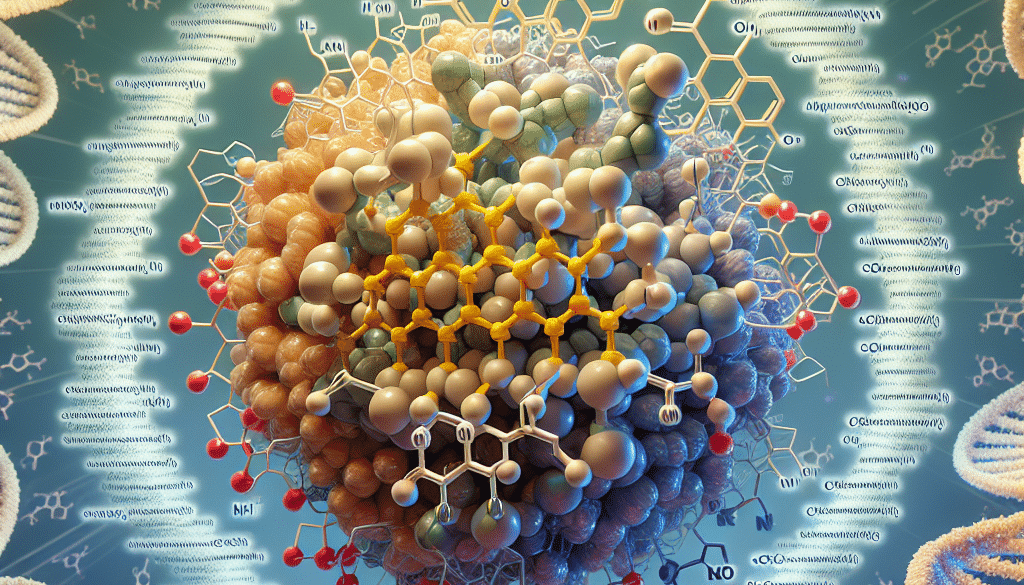Protein Building Molecule: Understanding Amino Acids
-
Table of Contents
- Amino Acids: The Building Blocks of Protein
- Understanding Amino Acids
- The Role of Amino Acids in Protein Synthesis
- Essential vs. Non-Essential Amino Acids
- Functions of Amino Acids
- Examples of Amino Acid Functions
- Importance of Amino Acids in Nutrition
- Case Studies and Statistics
- Conclusion: The Significance of Amino Acids
- ETprotein: Your Source for Quality Protein Products
Amino Acids: The Building Blocks of Protein

Proteins are fundamental components of all living organisms, essential for the structure, function, and regulation of the body’s tissues and organs. At the heart of protein structure are amino acids, the building blocks that link together in long chains to form proteins. This article delves into the fascinating world of amino acids, exploring their structure, functions, and importance in human health and nutrition.
Understanding Amino Acids
Amino acids are organic compounds composed of nitrogen, carbon, hydrogen, oxygen, and sometimes sulfur. They are the basic units from which proteins are constructed. Each amino acid has a central carbon atom, called the alpha carbon, to which an amino group, a carboxyl group, a hydrogen atom, and a variable side chain (R group) are attached. It is the unique side chain that determines the properties and functions of each amino acid.
The Role of Amino Acids in Protein Synthesis
Proteins are synthesized in the body through a process called translation, which occurs in the ribosomes within cells. Messenger RNA (mRNA) conveys genetic information from DNA to the ribosome, where transfer RNA (tRNA) molecules bring amino acids in the correct sequence to form a polypeptide chain. Once the chain is complete, it folds into a specific three-dimensional shape, creating a functional protein.
Essential vs. Non-Essential Amino Acids
Amino acids are classified into two categories: essential and non-essential. Essential amino acids cannot be synthesized by the body and must be obtained through diet. There are nine essential amino acids: histidine, isoleucine, leucine, lysine, methionine, phenylalanine, threonine, tryptophan, and valine. Non-essential amino acids, on the other hand, can be produced by the body and include alanine, asparagine, aspartic acid, glutamic acid, and others.
Functions of Amino Acids
Amino acids play a myriad of roles in the body, beyond just the construction of proteins. Here are some of their key functions:
- Enzyme Production: Many enzymes are proteins that require specific amino acids for their synthesis.
- Hormone Synthesis: Hormones like insulin and growth hormone are composed of amino acids.
- Immune Function: Amino acids are vital for the production of antibodies and immune system cells.
- Neurotransmitter Regulation: Amino acids such as tryptophan and tyrosine are precursors to neurotransmitters like serotonin and dopamine.
- Energy Production: During exercise or fasting, amino acids can be used as an energy source.
Examples of Amino Acid Functions
Leucine, isoleucine, and valine, known as branched-chain amino acids (BCAAs), are particularly important for muscle protein synthesis and energy production during exercise. Tryptophan is a precursor to serotonin, which affects mood, sleep, and appetite. Methionine is essential for the production of cysteine, which is a precursor to the antioxidant glutathione.
Importance of Amino Acids in Nutrition
A balanced diet that includes adequate amounts of essential amino acids is crucial for maintaining health. Protein-rich foods such as meat, fish, dairy, eggs, and plant-based sources like legumes, nuts, and seeds provide essential amino acids. Vegetarians and vegans need to combine different plant proteins to ensure they get all the essential amino acids.
Case Studies and Statistics
Research has shown that BCAAs can help reduce muscle soreness and fatigue after exercise. A study published in the Journal of Sports Medicine and Physical Fitness found that participants who supplemented with BCAAs experienced less muscle damage and a faster recovery time.
Statistics from the World Health Organization (WHO) suggest that the average adult should consume approximately 0.83 grams of protein per kilogram of body weight per day, which translates to a range of essential amino acids based on individual protein quality.
Conclusion: The Significance of Amino Acids
Amino acids are indispensable to life, serving as the building blocks of proteins and playing a pivotal role in various biological processes. Understanding the structure and function of amino acids is essential for grasping how our bodies operate at a molecular level. A balanced intake of essential amino acids through diet is vital for health and well-being, influencing everything from muscle repair to mood regulation.
ETprotein: Your Source for Quality Protein Products
If you’re looking to enhance your diet with high-quality protein products, ETprotein offers a range of plant-based protein options. Their organic rice protein, clear rice protein, pea protein, and other plant proteins are perfect for those seeking non-GMO, allergen-free supplements. Whether you’re involved in sports nutrition, weight management, or general health and wellness, ETprotein has the right product to meet your protein needs.
About ETprotein:
ETprotein, a reputable plant protein vegan protein Chinese factory manufacturer and supplier, is renowned for producing, stocking, exporting, and delivering the highest quality organic bulk vegan protein and plant proteins. They include Organic rice protein, clear rice protein, pea protein, clear pea protein, watermelon seed protein, pumpkin seed protein, sunflower seed protein, mung bean protein, peanut protein etc. Their offerings, characterized by a neutral taste, non-GMO, allergen-free attributes, cater to a diverse range of industries. They serve nutraceutical, pharmaceutical, cosmeceutical, veterinary, as well as food and beverage finished product distributors, traders, and manufacturers across Europe, USA, Canada, Australia, Thailand, Japan, Korea, Brazil, and Chile, among others.
ETprotein specialization includes exporting and delivering tailor-made protein powder and finished nutritional supplements. Their extensive product range covers sectors like Food and Beverage, Sports Nutrition, Weight Management, Dietary Supplements, Health and Wellness Products, and Infant Formula, ensuring comprehensive solutions to meet all your protein needs.
As a trusted company by leading global food and beverage brands and Fortune 500 companies, ETprotein reinforces China’s reputation in the global arena. For more information or to sample their products, please contact them and email sales(at)ETprotein.com today.












